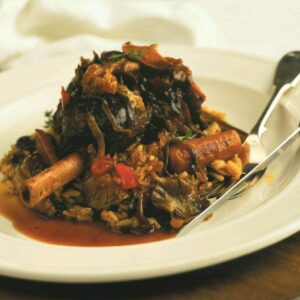
All animal foods contain vitamin B12 – some foods are fortified with it – but New Zealanders may still have a low intake.
Why B12?
Vitamin B12 is needed throughout life for normal growth and development, healthy functioning of the nervous system and cell division. A deficiency of B12 can cause tiredness, anaemia, tingling and numbness of the extremities, memory loss, disorientation and even dementia. Low levels of B12 at conception increase the risk for neural tube defects, and a deficiency across the life course can contribute to cardiovascular disease, high blood pressure and type 2 diabetes.
How much do you need?
The recommended dietary intake (RDI) for most adults is 2.4 micrograms (mcg) of B12 each day. During pregnancy and breastfeeding the RDI is 2.6mcg and 2.8mcg respectively.
Are you at risk?
Data from the last National Nutrition Survey (YEAR) showed our intakes of B12 were adequate, however since the survey publication an error was found in the data – breakfast cereals here are not fortified with B12. After re-analysis, it was found the prevalence of low B12 could possibly be as high as 27 per cent of the sampled population, although it may well be lower.
Vegetarians and vegans are most at risk of deficiency as B12 is found naturally only in animal foods. People regularly eating animal foods including red meat are likely to have an intake of 3mcg or more each day. Vegans, however, could have extremely low intakes of less than 1mcg per day.
A mother's B12 status during pregnancy and breastfeeding can have long-term effects on children. Studies have shown low B12 can affect the fatness and insulin resistance of a child, as well as their cognitive function.
As we age our ability to absorb B12 can be reduced, so older people may also need more. While there is no consensus yet, 3mcg has been suggested as a more useful daily intake to help avoid the potentially damaging effects of low B12 intakes on cognition.
Bottom line
A vegan or vegetarian diet can be healthy and safe, but fortified foods or supplements must be used to ensure an adequate intake of B12. This is especially important for women of childbearing age and for older people.
Sources of vitamin B12
All animal foods contain vitamin B12, although B12 from eggs is poorly absorbed. Foods fortified with B12 include some soy products and Marmite. Check the nutrition information panel as brands and products vary.
| Food | B12 |
|---|---|
| 150ml berry yoghurt | 0.3mcg |
| 125g lean chicken breast meat | 0.3mcg |
| 40g cheese | 0.5mcg |
| 95g can tuna | 0.5mcg |
| 1 teaspoon Marmite | 0.6mcg |
| 1 cup fortified soy milk | 1.0mcg |
| 1 cup trim milk | 1.0mcg |
| 95g can salmon | 3.0mcg |
| 1 mussel | 3.3mcg |
| 125g lean beef | 3.5mcg |
Did you know? Spirulina was once thought to be a good source of B12 for vegetarians but it has since been shown that the B12 in plant foods is not in a form our bodies can use.
www.healthyfood.com










